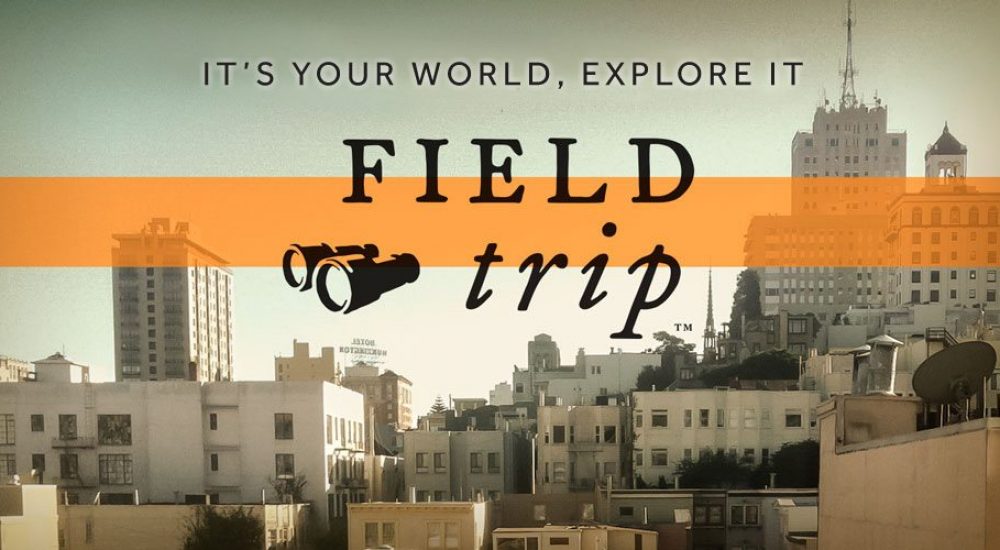One of my many responsibilities, along with coordinating and maintaining an afterschool program, is to oversee the organization’s field trips.
When I was first given this task, I looked at it as more of a side responsibility or least as not requiring as much intentionality as that of the day-to-day happenings of the program. It was not until after I experienced a few of these outings through the eyes of a young person that I truly saw the value of a field trip.
Our organization does at least one, if not two, field trips per month. While I understand that this might seem excessive, you have to understand that living in Washington, DC spoils any youth-serving organization when it comes to the smorgasbord of field trip options available. First off, all of the Smithsonian institutions are free and secondly, there is public transit at our disposal (especially if you don’t want to wade into purchasing a vehicle and the heavy cost of insurance).
Looking back, throughout the course of my career, I feel like I have led more field trips than I can count. So I would love to share with you, my BOOST colleagues, three benefits that consistent field trip outings can provide to your programs.
Field trips give the opportunity for the youth in your program to bond.
Not only do youth in your program bond through doing outings together, but youth will also bond more with your staff and volunteers. If you’ve ever ready anything else I have written or talked with me extensively about youth programming, you know that I think relationships can either make a program great or poor. Young people need to know that they are trusted and valued by their peers and the adults who are there to care for them. Outings will only make those relationships stronger.
Field trips also build relationships by giving youth and staff to create memories together that they can then refer to later. I still have young people talking to me about the field trip we took to the West Wing of the White House three years ago. I still have youth talking about the youth open mic night we attended last year. When people do life together, even if it is in programs, common experiences are needed to build positive relationships.
Field trips bring to life what you are learning in the program.
A young person can only appreciate something so much by learning about it in a classroom. This past month for Black History Month, our program learned about a different significant African American figure each week. One of these figures was Frederick Douglass. We learned about Mr. Douglass’ upbringing, how he taught himself how to read, and how he paved the way for so many people after him.
That stuff is all well and good, but our elementary youth will experience a whole new side of Mr. Douglass when they actually get to see his house in Southeast DC in a few weeks.
They will get to see where he had breakfast every morning and where he taught himself how to read. Field trips add a whole new layer of enrichment and learning to your program. You can help facilitate this by giving your young people things to look for when they get there. A few years ago, I took a group of teens to an African American art exhibit at the National Portrait Gallery. For youth that do not naturally embrace the arts as others, accessing an art museum can be difficult. So I assigned every young person a painting to look at online before going.
They looked at it for a while and, with staff facilitation, thought about what was happening in the painting or picture and shared that with the group. When we arrived at the gallery, we almost had to stop our youth from running through the museum to “their” painting or picture, they were so excited!
Field trips help build self-confidence.
For youth that live in a very historically rich place like Washington, you would think they all know about what their city has to offer them. But if they are not shown that by their families or may have grown up in poverty, many young people do not know much about what is outside their own neighborhoods. For some young people, their neighborhood is their entire world.
Taking young people on a trip would enhance their cultural awareness and give them a sense of pride for having experiencing something new. It would also give them pride in their own hometown or city if that is where the outing is located.
I do understand that taking your young people out requires an extra layer of planning and intentionality than we might have time for. But I honestly believe that implementing trips into your programs will only intensify the impact you are already making with your young people. Implementing trips does not mean you do it every week or every month.
Even if you do one big trip a year, that is a positive start toward making your program so much more beneficial for your young people.
This morning for breakfast, I had one of my quick, but delicious dishes I’ve been eating recently: Greek yogurt infused with honey and a nice cup of coffee.
Author Profile: @andym
